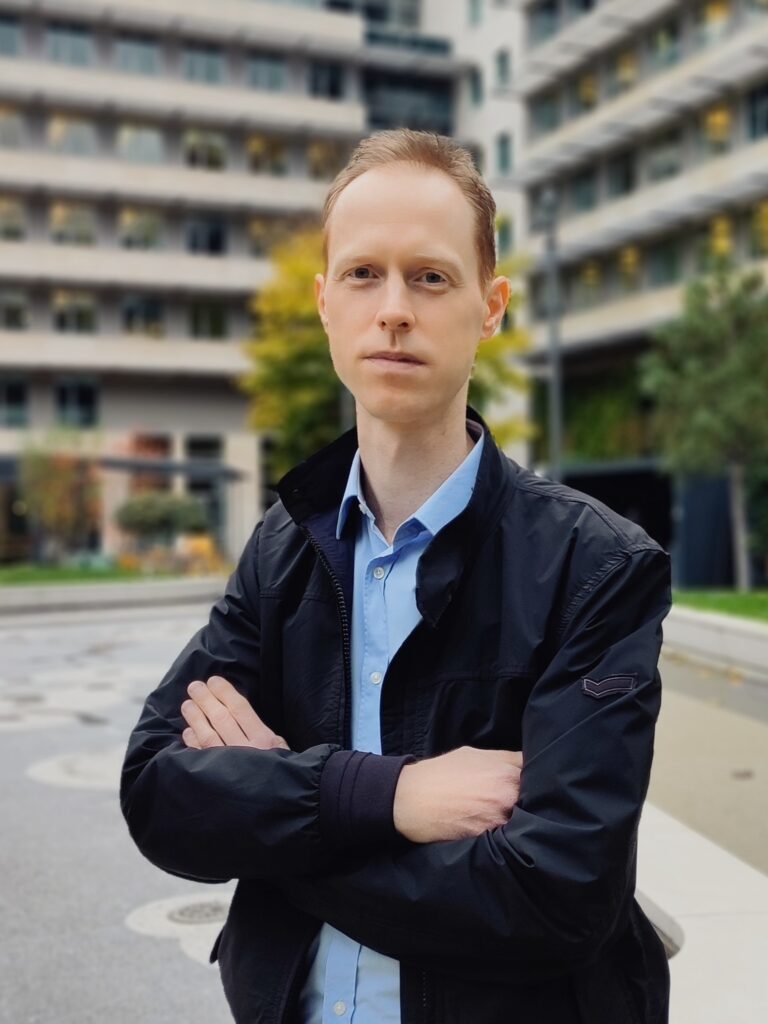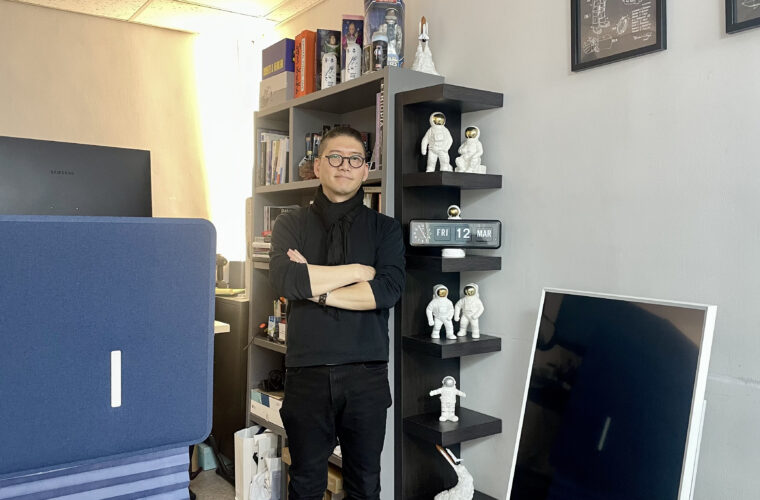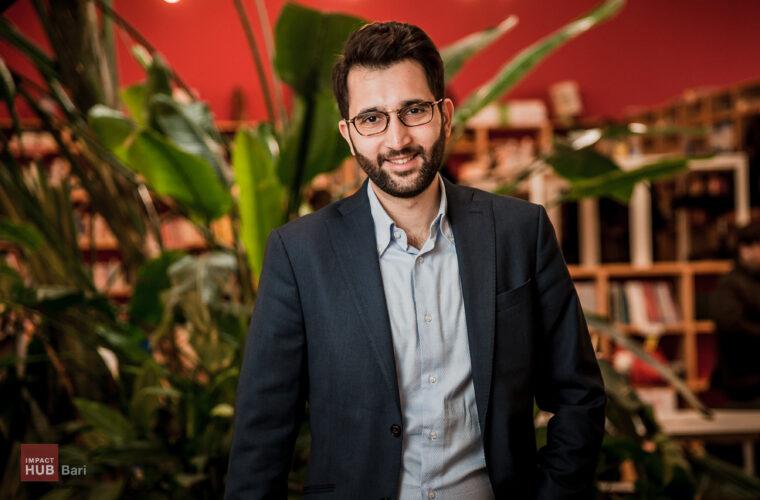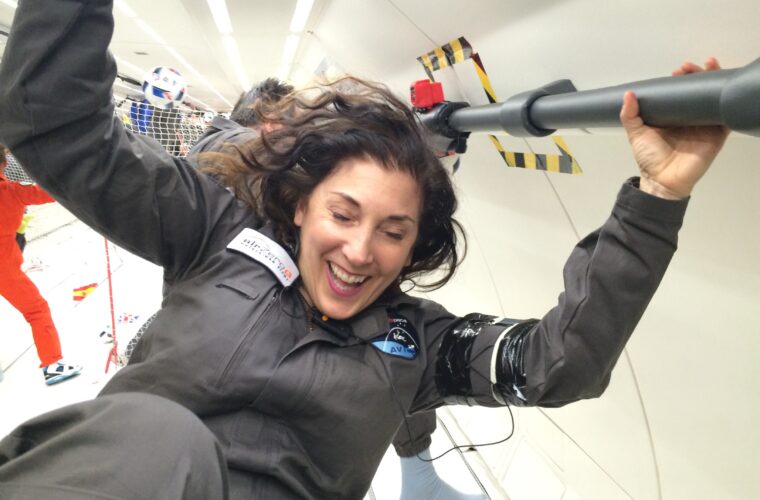Meet the talent: Gergő Korányi, a data architect and BI expert
Place of residence: Budapest, Hungary
Position: I am a Data Architect within the Data Services Technical Tribe at OTP HQ. I’m responsible for data visualisation and developing the evolution of self-service BI solutions. I design, create, deploy, and manage the enterprise’s data architecture and data (information) model that is the basis of a common business understanding.
Please describe a day in your life:
I get up early and start my HIIT morning workout routine. I skip breakfast because I’m a big fan of intermittent fasting. In the morning stand-up meeting, we discuss the most important working issues among the squad members, and then after lunch, I focus on running projects and starting engineering. After work, I have a running session in the nearby forest because getting into nature is a panacea for me. After that, I have a shower, cook something fresh, and end the day with reading.
How many projects are you currently working on? Please describe them:
I work on designing the Enterprise’s Data Hub (Bid Data) for data democratisation. I am driving a pilot to implement a streaming data pipeline for monitoring bank liquidity in real time. We are moving the bank’s on-prem BI solutions to the cloud as a software service. I support the Enterprise Data Governance project to implement an end-to-end data lineage from data sources to insights (dashboards).
In your opinion, who is the most influential person/company in the world of technology these days?
SMARTKAS is a very disruptive AgroTech company that can establish sustainable, green agricultural production with few resources anywhere in the world. Expanding their operations to more and more countries and creating food security all around the world is not impossible. They were able to come up with a great innovation by combining robotics, AI and green technologies that may be able to respond to our crisis.
If you could pick one app/product/project existing now that you wish you were involved in, what would it be?
I wish to be more involved in projects that have the potential to change the world positively.
How do you see technology evolving in the next ten years?
In my opinion, we are on the edge of a new paradigm. Robotics, automation, and AI may change our lives radically and take humans to the next level.
What are the three characteristics you have that make you successful in technology?
3C: creativity, criticism, and conscientiousness. I am passionate about creating something new, and I have a critical mind, especially when delivering a product, as well as conscientiousness. These help me to be productive.
What is the most challenging thing you had to deal with during your career?
Implementing a Data Hub that can cover all use cases is really challenging. I have to design a unified data platform that will also support BI, streaming, and AI activities. Changing the technology stack is like long-distance running in a large-scale enterprise. The transition takes time, so we have to be persistent.

What has been your greatest achievement up until today?
With my team, we managed to implement a self-service BI to reduce time to market and boost reporting services at the region’s largest retail bank.
What is your next goal?
I always look for new challenges. My primary goal is to grow as an engineer and a manager. I love acting as a technical guy.
What are your tips for people wanting to start in the tech world?
If you are motivated and have enough affinity, you can learn everything.
If you could say something to your younger self, what would it be?
Believe in yourself that you can do it.
What do non-tech people around you (family, friends) think you do?
Sometimes, I’m confused when I have to talk about my work with non-tech people because it’s not easy to define. I guess when I’m explaining my job, they think I am the kind of guru who is playing with big data, and that’s cool.
What is the invention of the century in your eyes?
Smart devices, streaming, blockchain, and machine learning have all made breakthroughs. However, I see great potential in combining genetics, microbiology, and AI technology.
Which famous person would you like to have dinner with and why?
Charlie Munger. I consider him to be not only a successful investor but also a philanthropist like Seneca in ancient Rome. He has so much common sense, and he is straightforward like me. Surely, he can give us some tips on how to change the current economic model (capitalism) to avoid disaster. I guess he would have some practical solutions for this huge issue as a value investor.
Where would you like to travel next?
Costa Rica – Nicoya Peninsula to study their lifestyles, but Thailand and Vietnam are on my bucket list.
Do you have a person who influences or motivates you?
Dávid Mészáros, founder of Smartkas. His philosophy that food and water should be a basic human right resonates with me.
The last thing regarding which you told yourself, “How come I haven’t thought of it before”?
I’ve been sorting and selling my unused clothes online using an app. It would have been nice if I had figured this out sooner.
What did you dream of creating/inventing/doing as a child?
As a competitive athlete, I was convinced I would end up in the sports world. I still do running workouts regularly. It’s an addiction for me.
What tools and technologies do you find most effective in your BI and data science work at OTP?
We have adopted cutting-edge technologies to meet business needs in a fast-paced environment. I’m a big fan of Tableau software regarding data visualisation. OTP has a sophisticated data architecture, including a data lake for managing structured and unstructured data, a cloud-based Data Governance tool to ensure a single source of truth and an advanced data virtualisation technology that can support all kinds of data consumers on-prem.

How do you stay updated on the latest trends and advancements in BI and data science?
I believe in lifelong learning; that’s why I always expand my knowledge base. I can stay up-to-date by following data technologies and trends and evaluating their potential impact on the organisation. I regularly participate in workshops and am doing hands-on training to upskill myself. Still, during my career, I realised that if I want to be better, I have to work on different interesting projects to speed up my learning curve.
How do you prioritise and manage your time across multiple projects?
I’ve been working on multiple projects, so I have to fly in different projects within different squads. I try to schedule my week reasonably because time is the most valuable resource. I can optimise my time framework by dedicating different days for meetings and engineering tasks. It helps a lot for me that business-as-usual tasks can be assigned to trusted squad members. The secret is a strong team when it comes to managing time.
How do you ensure effective communication between technical and non-technical stakeholders in your projects?
During my career, I learned the business and IT sides and how to collaborate effectively. I always try to bridge the gap between stakeholders by turning business needs into technical requirements.
Are there any emerging technologies or methodologies in BI and data science that you are fascinated by?
Data Lakehouse technology is very impressive. It’s a modern data architecture that combines the benefits of the traditional data warehouse and the data lake.
What are your preferred resources for continuous learning in the fields of BI and data science?
I like to work with talented, friendly people. We can learn a lot from each other. During our work, we motivate and push each other to get ahead.
Are there any certifications or training programs you recommend for individuals aspiring to excel in BI and data science?
I prefer a hands-on approach. Microsoft provides several role-based certifications to remain competitive.
What leadership principles are essential for success in the tech industry?
I believe the best leaders focus on people to get the most out of them. The expert should focus on the tasks, the leader should focus on managing people and building a strong team, and success will come.
How do you think advancements in AI and machine learning will impact the field of BI in the coming years?
BI can analyse the past; AI can predict the future. We should combine them when it comes to the data challenge.



